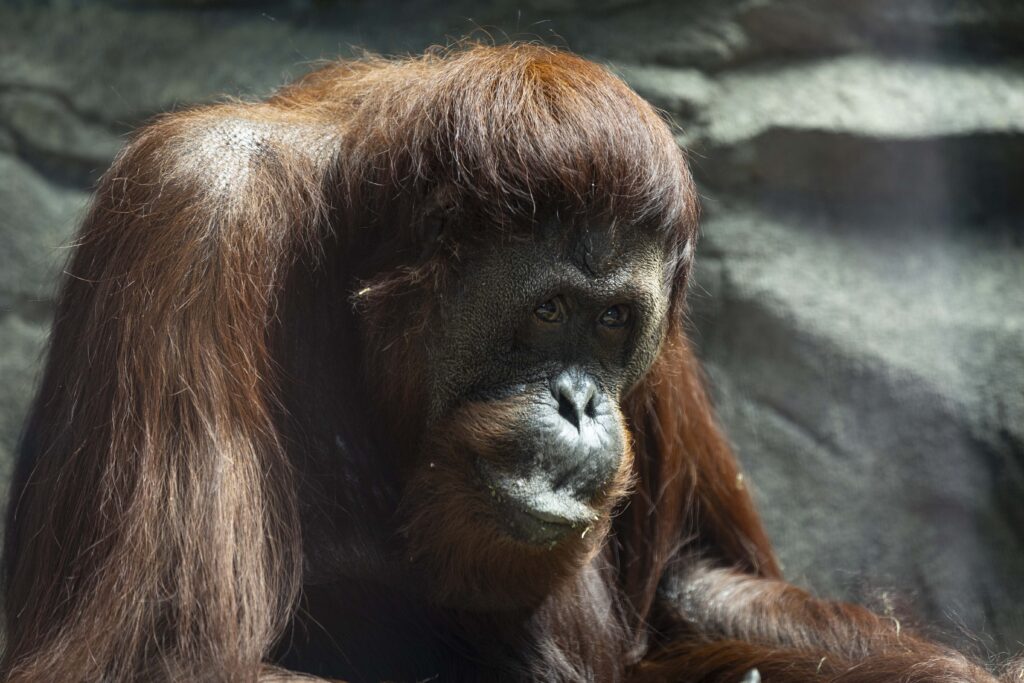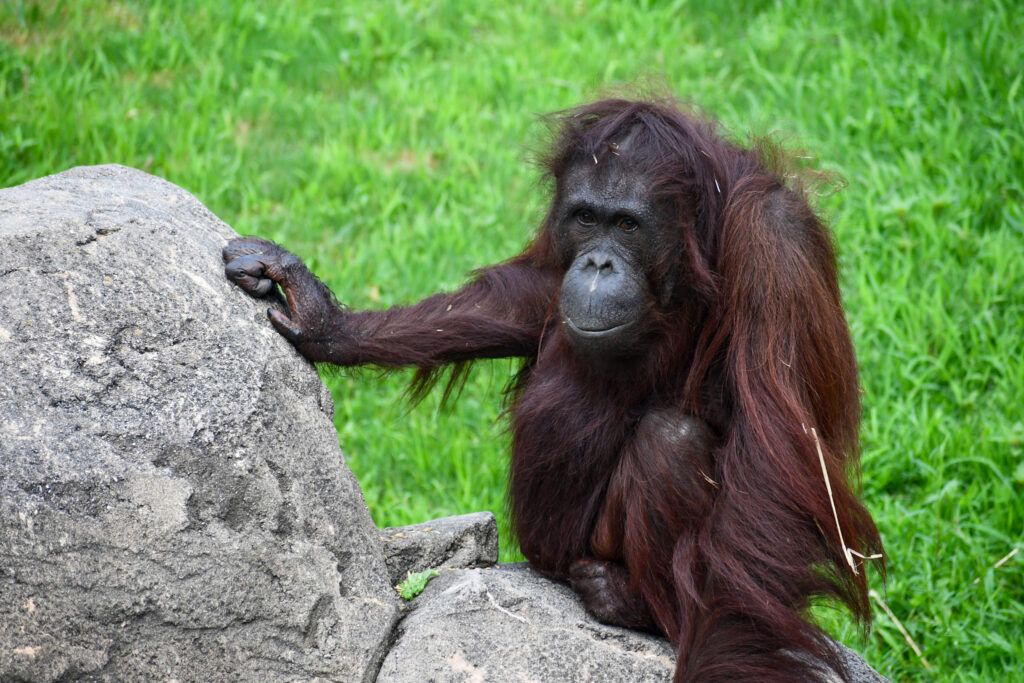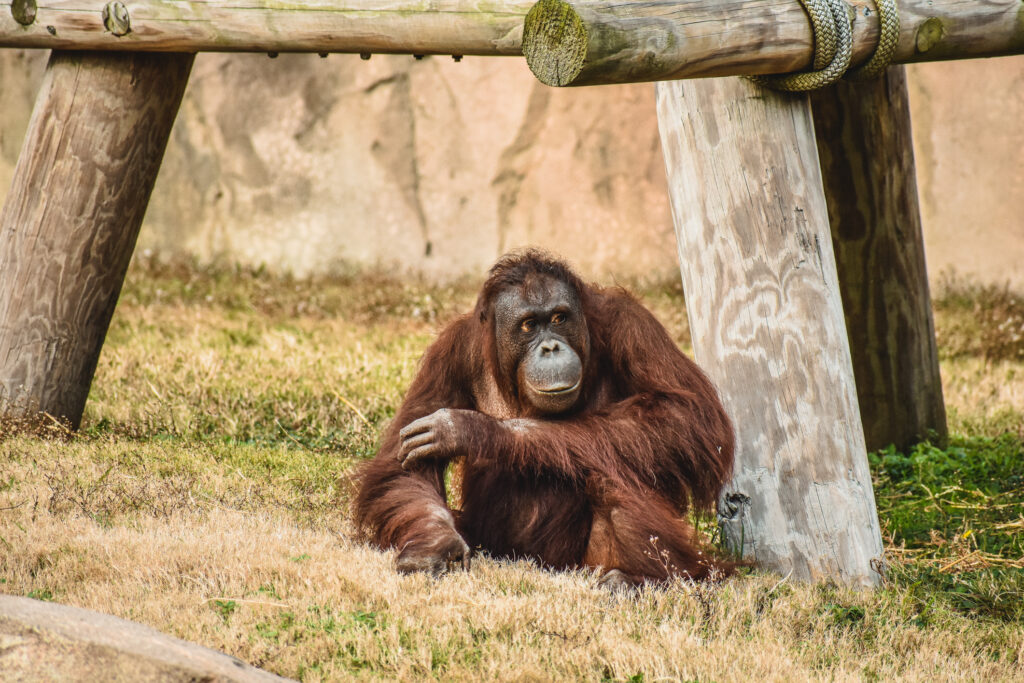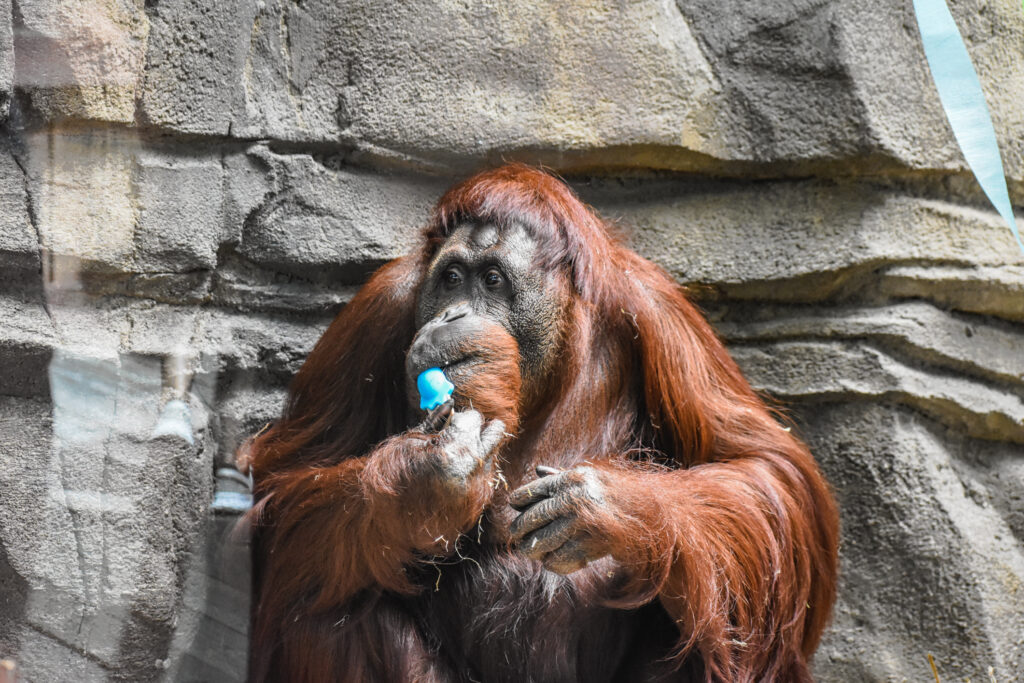Bornean Orangutan
*This page is under renovation and all information may not be up-to-date or complete*
Description
Bornean orangutans are the largest tree-dwelling mammals on Earth and their Malay name translates to “person of the forest”. Orangutans are great apes and have long, shaggy reddish-orange hair. They have 32 teeth, just like humans. Males grow to be more than twice the size of females and grow longer hair and large cheek pads. Both males and females have throat sacs and cheek pads that help their vocalizations resonate through the forest.
Bornean orangutans will appear different from Sumatran orangutans with a broader face, shorter beard, and slightly darker hair color.
Range & Habitat
Orangutans are found only on the islands of Sumatra and Borneo, which keeps the two species genetically separated. They live in the remaining isolated fragments of tropical rainforests and secondary hill forests down to swampy areas and will occasionally visit grasslands, cultivated fields and shallow lakes.
Behavior
Orangutans are the most arboreal (tree living) of the great apes. Every night, orangutans build nests from branches and foliage where they sleep. Bornean orangutans are largely solitary animals and don’t form social groups like some other ape species. However, our orangutans at the Zoo have formed family groups that live in two separate exhibits.
Females will reach maturity around 11-15 years old while males reach maturity around … where their cheek pads will fully develop. Offspring stay with their mothers for up to 8 years, in which the mother will not have another baby.
Diet
These apes are vegetarians with the exception of an occasional insect. As “folivores”, they eat leaves, bark, vines, sap, roots, flowers and all other types of plant material. Roughly 60% of their diet is made up of fruit.
At the Zoo they eat …
Conservation
Major threats are destruction, degradation and fragmentation of their habitats, as well as hunting.
Fun Facts
- Bornean orangutans are the largest arboreal mammals in the world.
- Orangutans share approximately 97% of their DNA with humans.
- They are the only great ape species native to Asia.
Virginia Zoo Animals
Family Group 1: Schnitz (male – born: 6/27/1982) & Pepper (female – born: 5/22/1980)
Family Group 2: Solaris (male – born: 6/22/2003), Dara (female – born: 9/23/1999) and Poppy (female – born: 6/29/2024)

Scientific Name
Pongo pygmaeus
Threat Level
Critically Endangered
Size
Males: 3.2 ft. weighing 110-220 lbs.
Females: 2.5 ft. weighing 66-110 lbs.
Life Expectancy
35-45 years in the wild but into their 60s in human care


